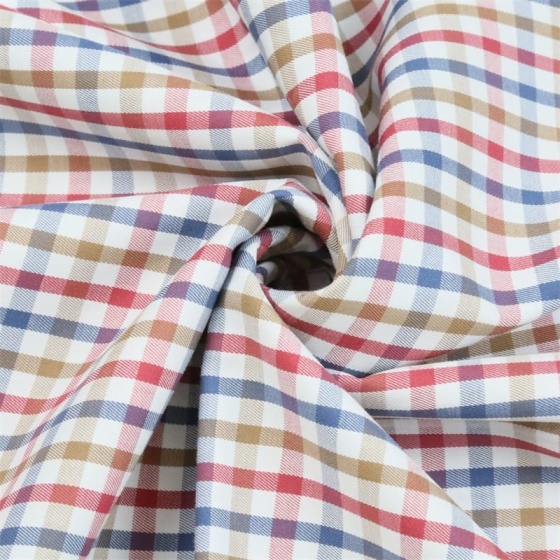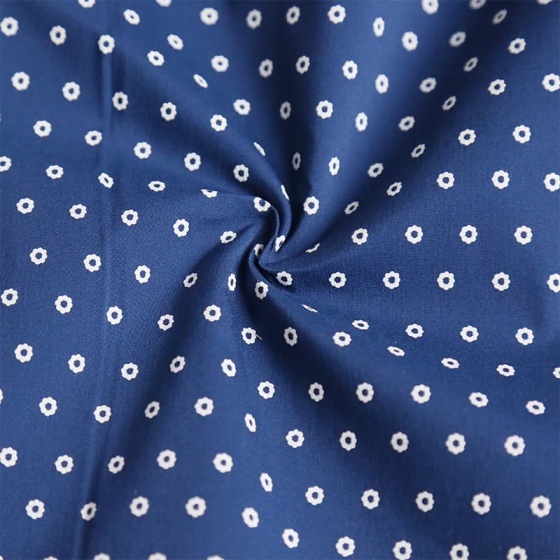Why Cotton Dyed Fabric is a Sustainable Choice for Apparel
Jul 13,2025
Why Cotton Dyed Fabric is a Sustainable Choice for Apparel
Table of Contents
- 1. Introduction to Cotton Dyed Fabric
- 2. Understanding Sustainability in Fashion
- 3. The Benefits of Cotton Dyed Fabric
- 3.1 Eco-Friendly Material
- 3.2 Biodegradability and Compostability
- 3.3 Reduced Water Consumption
- 3.4 Use of Natural Dyes
- 3.5 Ethical Production Practices
- 4. How to Choose Sustainable Cotton Dyed Fabric
- 5. Challenges in Cotton Production
- 6. The Future of Cotton Dyed Fabric in Sustainable Fashion
- 7. Conclusion
- 8. FAQs about Cotton Dyed Fabric
1. Introduction to Cotton Dyed Fabric
Cotton dyed fabric has gained significant traction in the textile industry due to its versatility, comfort, and sustainable attributes. As consumers become more environmentally conscious, the demand for sustainable fabrics has risen. This article explores the reasons why cotton dyed fabric is a preferred choice for sustainable apparel, emphasizing its eco-friendly qualities and ethical production processes.
2. Understanding Sustainability in Fashion
Sustainability in fashion refers to the creation of clothing and textiles in a way that is environmentally friendly, socially responsible, and economically viable. The fashion industry has historically been associated with pollution, waste, and unethical labor practices. However, as awareness grows, many brands and consumers are pivoting towards sustainable practices. Choosing cotton dyed fabric is one significant step towards this goal, as it embodies the principles of sustainability.
3. The Benefits of Cotton Dyed Fabric
Cotton dyed fabric offers numerous benefits that make it a sustainable option for apparel.
3.1 Eco-Friendly Material
Cotton is a natural fiber that is biodegradable and renewable. Unlike synthetic fibers, which can take hundreds of years to decompose, cotton breaks down naturally, thus reducing landfill waste. Additionally, cotton farming can be carried out sustainably, using organic farming practices that avoid harmful pesticides and fertilizers, further contributing to its eco-friendliness.
3.2 Biodegradability and Compostability
One of the remarkable attributes of cotton dyed fabric is its biodegradability. When disposed of properly, cotton fibers decompose within a few months. This property makes cotton a sustainable alternative to synthetic fabrics, which can linger in landfills indefinitely. Furthermore, cotton can be composted, returning essential nutrients to the soil and promoting environmental health.
3.3 Reduced Water Consumption
While traditional cotton farming is often criticized for its water usage, advancements in sustainable farming practices have led to the development of methods that significantly reduce water consumption. Organic cotton, for instance, is typically grown using rainwater irrigation rather than relying heavily on groundwater. Sustainable dyeing techniques also focus on reducing water waste, making cotton dyed fabric a more sustainable choice overall.
3.4 Use of Natural Dyes
The dyeing process of cotton fabric can have a significant impact on its sustainability. Many brands are now opting for natural dyes derived from plants, minerals, and other organic sources. These dyes not only reduce the environmental impact of chemical dyes but also provide a unique aesthetic to the fabric. The utilization of natural dyes aligns with the principles of sustainability, as they are generally less harmful to the environment and human health.
3.5 Ethical Production Practices
The production of cotton dyed fabric often supports ethical labor practices. Many sustainable brands prioritize fair wages and safe working conditions for their employees. By choosing cotton dyed fabric, consumers can support companies that are committed to ethical practices, helping to improve the livelihoods of workers in the textile industry.
4. How to Choose Sustainable Cotton Dyed Fabric
When selecting cotton dyed fabric for your apparel, consider the following factors to ensure a sustainable choice:
- **Source**: Look for brands that provide transparency about their sourcing and production processes. Certifications such as GOTS (Global Organic Textile Standard) or OEKO-TEX can be indicators of sustainability.
- **Dyes**: Opt for products dyed with natural or low-impact dyes, which are less harmful to the environment.
- **Production Practices**: Research the brand's labor practices to ensure they align with ethical standards.
- **Longevity**: Choose high-quality cotton fabrics that are durable and can withstand multiple washes, reducing the need for frequent replacements.
5. Challenges in Cotton Production
Despite its many benefits, cotton production faces several challenges. These include:
- **Water Scarcity**: Traditional cotton farming can lead to water depletion in certain regions, particularly where resources are scarce. Sustainable practices are essential in mitigating this issue.
- **Pesticide Use**: Conventional cotton farming often relies on synthetic pesticides and fertilizers, impacting ecosystems and farmer health. Transitioning to organic practices can help alleviate these concerns.
- **Market Competition**: Sustainable cotton dyed fabric competes with cheaper, less sustainable options, making it crucial for consumers to support ethical brands.
6. The Future of Cotton Dyed Fabric in Sustainable Fashion
The future of cotton dyed fabric is promising as the fashion industry shifts towards sustainability. Innovations in textile technology, such as waterless dyeing processes and the development of organic cotton varieties, are paving the way for a more sustainable future. Additionally, consumer demand for ethically produced products continues to grow, encouraging brands to adopt eco-friendly practices.
As awareness about the environmental impact of fashion increases, cotton dyed fabric is likely to become a staple in sustainable wardrobes. By choosing cotton dyed apparel, consumers not only enjoy quality and comfort but also contribute to a healthier planet.
7. Conclusion
Cotton dyed fabric emerges as a clear winner in the quest for sustainable apparel. Its natural, biodegradable properties, ethical production practices, and reduced environmental impact make it a responsible choice for conscious consumers. As we navigate the complexities of the fashion industry, opting for cotton dyed fabric can significantly contribute to a more sustainable future.
8. FAQs about Cotton Dyed Fabric
What is cotton dyed fabric?
Cotton dyed fabric is made from natural cotton fibers that have undergone a dyeing process, often using natural dyes or low-impact chemical dyes to achieve various colors and patterns.
Is cotton dyed fabric environmentally friendly?
Yes, cotton dyed fabric can be environmentally friendly, especially when produced using sustainable farming practices, natural dyes, and ethical labor standards.
How long does cotton dyed fabric last?
High-quality cotton dyed fabric can last for many years, especially when properly cared for. Its durability makes it a sustainable option compared to cheaper, synthetic alternatives.
Can cotton dyed fabric be recycled or composted?
Yes, cotton dyed fabric is biodegradable and can be composted under the right conditions. It can also be recycled, depending on the dyeing process used.
What are the benefits of using natural dyes on cotton fabric?
Natural dyes are generally less harmful to the environment and human health compared to synthetic dyes. They also provide unique color variations and can be more sustainable in their production.
How can I ensure I am buying sustainably produced cotton dyed fabric?
Look for brands that provide transparency about their sourcing and production processes, and seek certifications like GOTS or OEKO-TEX that indicate ethical and sustainable practices.
More Events
Understanding Cotton Dyed Fabric: A Comprehensive Guide to Textile Dyeing
Cotton dyed fabric is a cornerstone in the textile industry, especially within the realm of dyeing and weaving. The process of dyeing cotton fabric involves applying colorants to cotton fibers, resulting in a wide variety of hues and patterns that enhance the fabric's aesthetic appeal. This technique not only elevates the visual qualities of the fabric but also plays a crucial role in the overall
Dec 05,2025
How to Effectively Market Products Made from Printed Cloth Fabric: A Comprehensive Guide
How to Effectively Market Products Made from Printed Cloth Fabric Table of Contents 1. Introduction to Printed Cloth Fabric Marketing 2. Understanding Your Target Audience 3. Crafting a Unique Selling Proposition (USP) 4. Utilizing Social Media Platforms for Promotion 4.1 Building a Strong Brand Presence 4.2 Engaging Content Creation 5. Leveraging Influencer Collaborations 6. Implementing SEO Stra
Dec 04,2025
Quality Linen Denim Fabric Supplier Supports Modern Apparel
In the fashion industry, the search for materials that offer both aesthetic appeal and practical comfort is ongoing. A blend like linen denim addresses this demand by combining the classic, durable look of denim with the natural, breathable properties of linen. For designers and clothing brands, working with a reliable quality linen denim fabric supplier is key to creating garments that meet the expectations of today's consumers.
Dec 03,2025
Do Not Heasite To Contact W&S, Your Comprehensive Solution Provider Now!
We like produce phone cases but we more like to see you earn lots of money by working with us.
Quick Link
Garment
Copyright © Nantong Wang and sheng Textile Co., Ltd. All Right Reserved.

Whatsapp: 8615996649800
Looking forward to your call
Tel: +86-15996649800
Looking forward to your call
Email: Nick.wang@ntwangsheng.com
Looking forward to your letter





